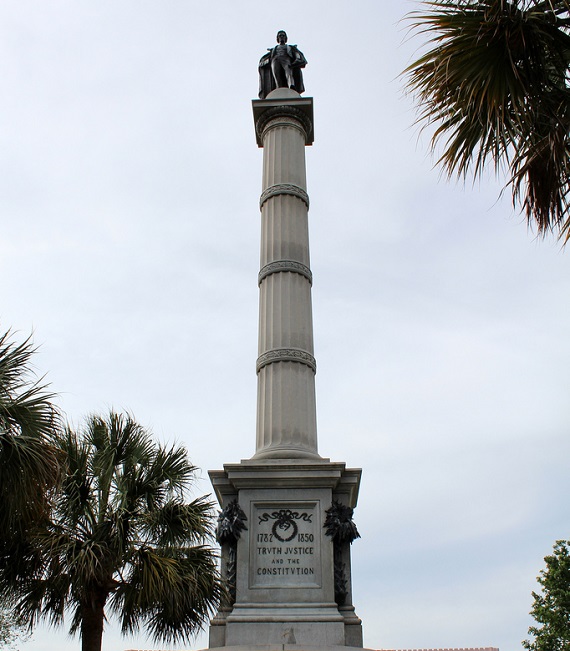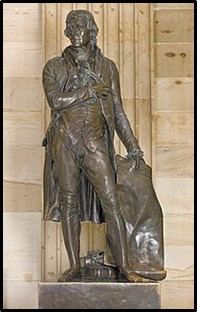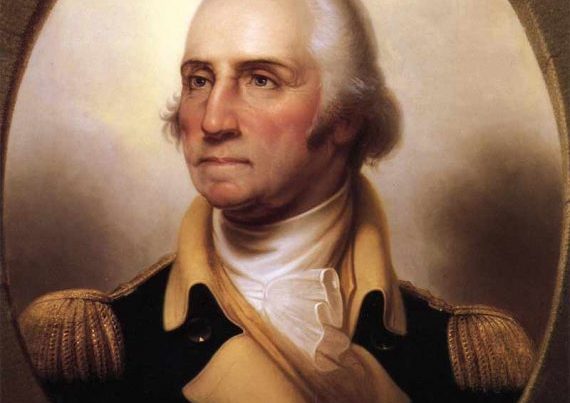John C. Calhoun–valedictorian of his class at Yale, Vice President, Secretary of War, and Senator–was one of the greatest statesmen America has produced. Margaret Coit wrote a favorable biography of him in 1950 that won a Pulitzer Prize. In 1959, a Senate committee, headed by John Kennedy, ranked him among the five greatest senators in American history. Calhoun wrote one of the early works on the Constitution, and his Disquisition on Government was the first systematic political philosophy written by an American. It compares favorably with the classic modern political philosophies of Hobbes, Locke, Hume and Rousseau. Lord Acton (famous for “power corrupts and absolute power corrupts absolutely”) placed the Disquisition in his list of the 100 best books ever written.
South Carolinians should be proud of this native son. Yet the politically correct in his own state seek to tear down the monument to him on Marion Square because he said in a Senate speech that slavery was “a positive good.” Historians have distorted that comment to paint a picture of Calhoun as a dark, un-American character. And the distortion has created a fog that makes it difficult to understand what Calhoun meant. But if we pay attention to the historic context in which he s spoke and to Calhoun’s carefully guarded words, his understanding of slavery is in fact morally superior to Lincoln’s.
The first thing to understand–which historians have long suppressed–is that slavery was a national wrong involving the North as much as the South. New Englanders plied the nefarious slave trade for over 160 years. As of 1860, the wealth of America had come mainly from growing and shipping slave produced staples to Europe. The federal revenue was largely funded by this vast Southern export trade. As late as 1860, it was 75 percent of American exports. The North provided financing, shipping and insurance for the operation.
The greatest investment in America was in slaves. It stood at $3 billion in 1860. It is estimated that the North took 40 percent of every dollar the South made. Those profits were the seed money for the industrial revolution which would feed the industrial ruling class with a desire to remake the continent in its own image which it did by invading and conquering the South.
Since slavery was a national wrong, it demanded a national solution. The morally right thing would have been a nationally funded program to emancipate slaves, compensate slave holders, and integrate the freed Africans into American society. Yet throughout the antebellum period no national political party had proposed emancipation much less compensation and integration.
Integration was out of the question for Northerners. For instance, the constitution of Lincoln’s Illinois forbade the entrance of any free blacks. Northern and Western states all had constitutional or legislative restrictions on free blacks entering. Companies were formed called “Ohio in Africa” and “Indiana in Africa” with the mission to ship several hundred free Africans a year out of those states until rid of the entire black population.
Lincoln won the presidency on the slogan “no slavery in the West.” He explained to the voters that this would keep the region free from the “troublesome presence of free Negroes.” (italics mine) When general Dix asked abolitionist governors of New England to receive 2,000 black refugees, displaced by Lincoln’s invasion, they refused.
Upon first arriving in the Senate, Jefferson Davis was shocked to hear Northerners speak of the gradual extermination of blacks as a matter of course. They opposed slavery because, in providing cradle to grave welfare, it raised prices to unnatural levels. They argued that in a truly free market blacks would perish or immigrate to central America. This was a comforting thought to Ralph Waldo Emerson, abolitionist and one of the North’s greatest writers: “The black man declines,” he said, “It will happen by & by that the black man will only be destined for museums like the Dodo.”
The Republican controlled House Committee on Emancipation Policy said in its 1862 report: “the highest interests of the white race, whether Anglo-Saxon, Celtic, or Scandinavian requires that the whole country should be held and occupied by these races alone.” Historian George Fredrickson observed that Northern national identity “pointed ahead to the elimination of the Negro as an element in the population, through planned colonization, unplanned migration, or extermination from “natural processes.” Recent studies show that Lincoln continued with plans to ship blacks out of the country a year after the Emancipation Proclamation and up to his assassination.
“Anti-slavery” agitation in the antebellum period, with rare exceptions, was motivated not by an intention to emancipate and improve the conditions of the African population but by a horror of living with blacks. Lincoln laid out the moral alternatives to his Northern voters. “What then? Free them all, and keep them among us as underlings? Is it quite certain that this betters their condition? … What next? Free them, and make them politically and socially our equals? My own feelings will not admit of this; and if mine would, we well know that those of the great mass of white people will not…. We cannot then, make them equals.”
So what was to be done about slavery? Lincoln could have done the morally right thing by explaining the need for a national program of emancipation, compensation, and integration. Instead he washed his hands of the problem. “If all earthly power were given to me, I should not know what to do, as to the existing institution.”
Once the war started and got out of hand, Lincoln desperately proposed to the deaf ears of Congress a program of emancipation and modest compensation. But even then he rejected integration, arguing that Northern states, like his own Illinois, should be able to prohibit the entrance of emancipated blacks.
As of 1860 the only group advocating emancipation were the abolitionists, a tiny fanatical group originating in New England in the 1830s. They demanded immediate and uncompensated emancipation backed by terrorist threats of the sort later carried out by John Brown. This was impractical and morally reprehensible because it failed to recognize the North’s responsibility for the origin and continuation of slavery.
It was in this context of invincible Northern racism, inflammatory abolitionist agitation over slavery–but devoid of any morally responsible program to eliminate it–that Calhoun made his remark about slavery being a positive good. His purpose in saying this was to bring moral clarity to the issue. “Surely,” he told Northerners, “if it [slavery as actually practiced] was an evil, moral, social, and political,” as they said it was, then as “virtuous men,” they were bound “bound to … put it down.” [i] But this meant Northerners would have to shoulder their share of the financial and social costs of emancipation. And for Northerners that was out of the question.
This meant that whatever Northerners might say, they in fact saw slavery as a good, given the alternatives. Nor will it do to say Lincoln occupied the moral high ground because he thought of slavery as a “necessary evil” whereas Calhoun perversely described it as a positive good. The only thing that made slavery a “necessary evil” for Northerners was having to pay their share in eliminating it and having to live with free blacks. Neither of these objections to emancipation are morally commendable.
Lincoln and Northern “anti-slavery” critics are considered moral giants today because they voiced “opposition to slavery.” But they were opposed to slavery only ideologically, as an abstract idea or principle, not as a practice–the latter they accepted. The strongest evidence that they accepted it is that they put forth no morally responsible national program to eliminate it.
Ideological agitation over slavery gives a feeling of pleasure that one is “standing for something.” This feeling (which does not require doing anything) is confused with moral merit. But moral merit attaches only to what you do or seriously intend to do. To declare that slavery is wrong confers intellectual merit because you are saying what is true, but it confers no moral merit unless you do something to eliminate slavery. For the North that would entail a financial and social cost they were unwilling to pay.
The absurdity is that historians have treated Calhoun’s remark about the goods achieved by the institution, which was intended as a criticism of ideology, as itself ideological: that is, that he thought of slavery as an abstract principle which gave some people at all times and places free reign to enslave other human beings.
Rather, Calhoun went out of his way to deny “having pronounced slavery in the abstract a good.” And he gave an analogy to make his meaning clear: “Whenever civilization existed, death too was found and luxury; but did he hold that death and luxury were good in themselves.” This qualification was given in vain to future historians.
Given these limitations, Calhoun argued that ideological agitation over slavery by abolitionists and their evangelical fellow travelers–which only distorted reality, created unrealizable expectations, unconditional resentment, and destruction–should cease and a fact-based study of slavery be undertaken.
Using social and economic statistics, he argued that slaves had arrived in a degraded condition, torn from their pagan tribal cultures into the most technologically advanced society in history. Gradually they had acquired the Christian religion and other practices of European civilization and were better cared for physically than Northern laborers who worked at near subsistence wages with no welfare benefits.
Historians today know that nearly half the children in New York City died before the age of five; whereas black child mortality in the South was about the same as for whites. Many had acquired valuable skills and some had nearly “kept pace with that of their owners … in respect to civilization.” He placed no limits on what virtues blacks could achieve, and urged that self-serving and destructive ideological posturing should stop and the Institution be nationally evaluated in another “ten years.”
Calhoun thought it an achievement that slaves were gradually being integrated into Southern society through the plantation household; whereas Northerners perceived blacks as aliens, kept them out of their states and sharply segregated those within. Southerners for over two centuries had lived cheek by jowl with blacks and had developed reciprocal relations. Northern visitors often found this social intimacy offensive. It was, to be sure, a limited form of integration, but it was a morally substantial practice that in time could grow into something better.
Calhoun taught that liberty is a reward for virtue. From this it follows that as blacks achieved virtue, liberty should follow. Although gradual emancipation is implied in Calhoun’s analysis of what he recognized as the morally evolving practice of slavery, he put forth no practical plan for emancipation. But neither did anyone else at the time, least of all Lincoln whose only practical solution was to keep blacks, slave or free, out of his state and the West.
Calhoun’s wise counsel was rejected in favor of even more intense ideological posturing over slavery which made rational discourse impossible, tore the nation apart, led to a bloody invasion of the South, and an emancipation under the worst possible conditions for blacks and whites. An ideological style of thinking in the form of “political correctness” about moral and political matters–or rather, a failure to think–has captured American cultural and political elites with the result that rational political discourse has again become nearly impossible and the nation is once more being torn apart.
[i].John C. Caloun, Union and Liberty ed. Ross Lence (Indianapolis: Liberty Fund, 1992), pp. 461-476. This section contains the debate about slavery being a positive good. All quotes from Calhoun that follow are to this section.
A slightly different version of this article was published in the Charleston Mercury.







